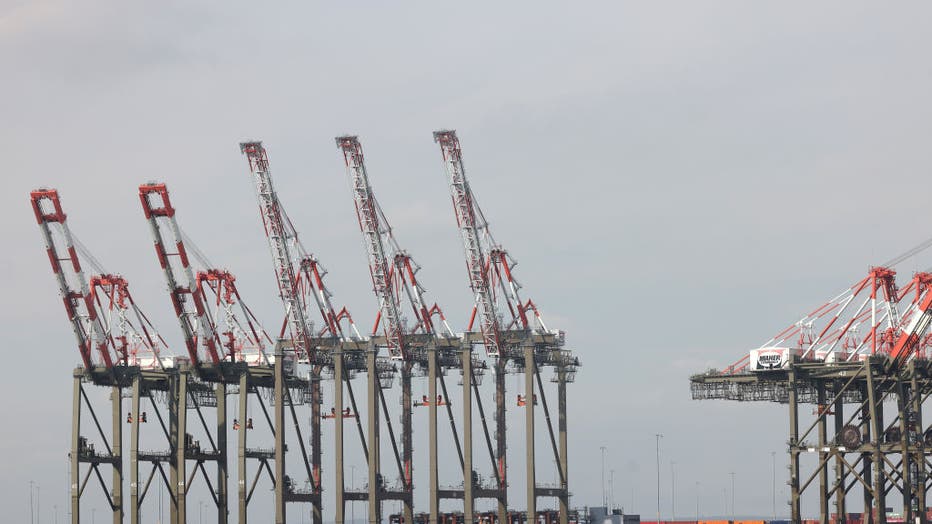US longshoremen and ports reach tentative contract deal, averting strike
The International Longshoremen's Association (ILA) and the U.S. Maritime Alliance have reached a tentative six-year contract agreement, averting a strike that could have disrupted East and Gulf coast ports. The deal was announced Wednesday, just one week before the Jan. 15 deadline.
The agreement ensures union job protections while allowing ports to adopt modern technology aimed at improving safety, efficiency, and capacity. Both sides said they would withhold specific details until members review and ratify the agreement.
Automation concerns addressed in negotiations
The deal follows months of negotiations, including a critical dispute over automation. Union members expressed concerns about semi-automated cranes and other machinery potentially replacing workers. The agreement reportedly includes a framework for implementing technology in ways that create jobs rather than eliminating them.

FILE - The International Longshoremen’s Association union and the U.S. Maritime Alliance of ports and shipping companies said they had reached a tentative agreement for a six-year contract. ((Photo by Michael M. Santiago/Getty Images))
In October, the longshoremen staged a three-day strike before agreeing to a temporary truce that hinged on resolving automation issues. Wednesday’s announcement resolves that standoff and provides labor and operational stability for the ports.
Economic impact of averted strike
A prolonged strike would have shut down ports along the East and Gulf coasts, disrupting supply chains and harming the U.S. economy. Economists warned that such a disruption could have had significant consequences if it lasted more than a week.
In a joint statement, both sides emphasized the importance of the agreement. "This is a win-win agreement that creates ILA jobs, supports American consumers and businesses, and keeps the American economy the key hub of the global marketplace," the ILA and U.S. Maritime Alliance said.
The Source:
Information based on statements from the International Longshoremen's Association, U.S. Maritime Alliance, and industry reports.

